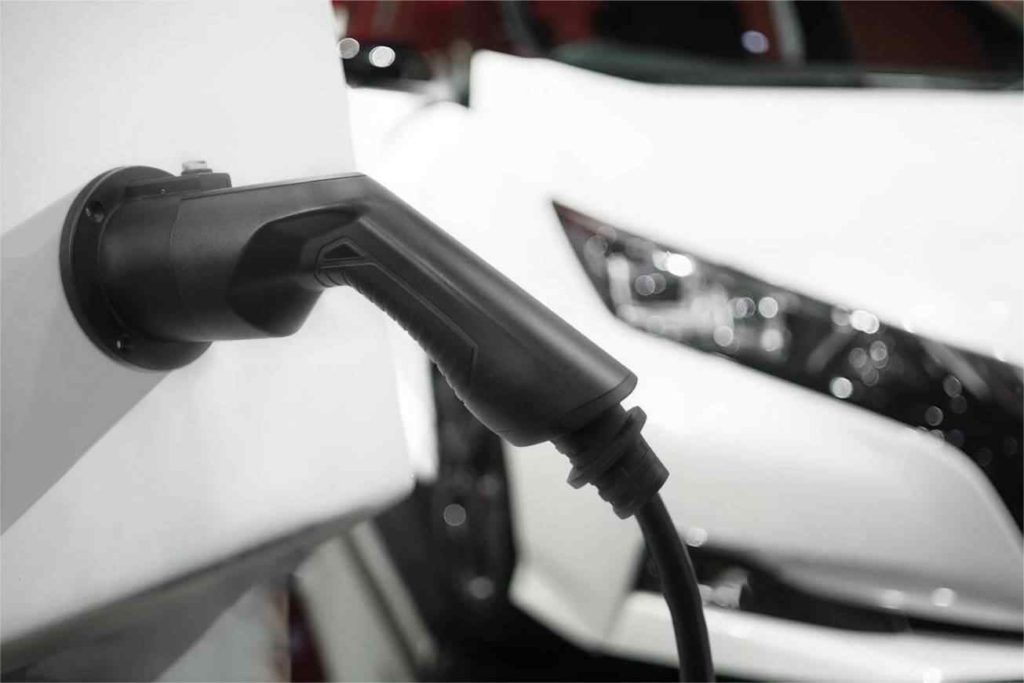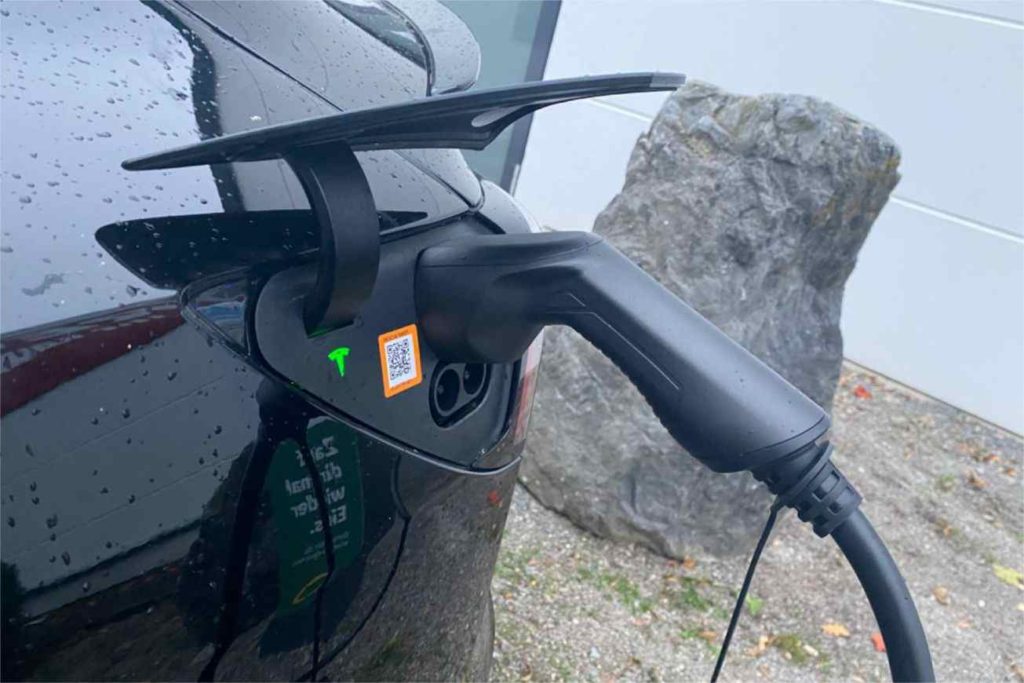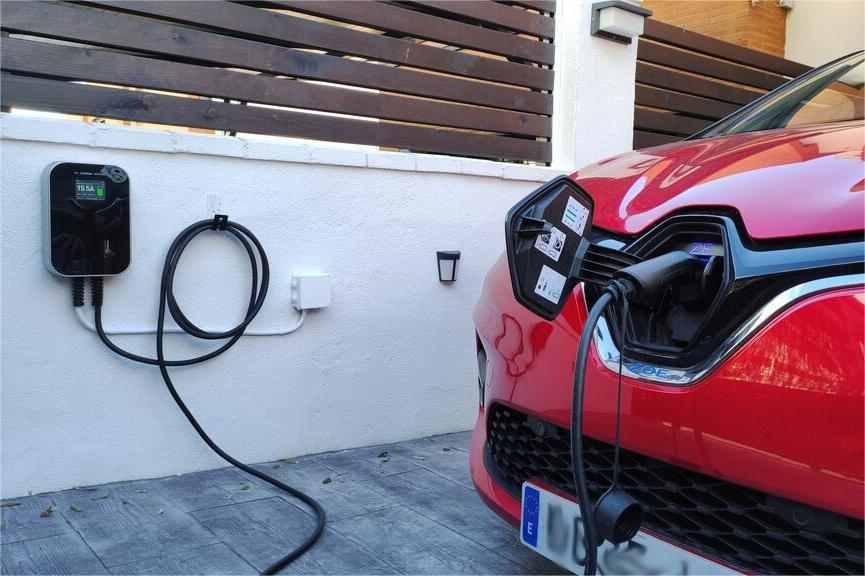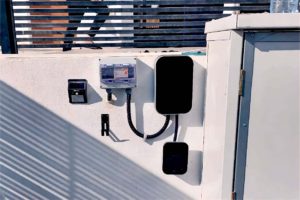Electric cars are increasingly popular, but one of the biggest questions drivers have about them is how long it takes to charge. It can vary greatly depending on your charging system, how much power the car needs, and even factors like weather and temperature. Understanding these factors will help you better manage your electric car’s charging time.

Battery type, size and state of charge
One of the key influences on electric car charging time is the capacity of the battery and its type. High-capacity batteries will take longer to charge than smaller ones, and cars with a bigger range may require more charge than those with shorter ranges. The current state of charge of your battery also affects how quickly it will be able to absorb power from the charger; a completely empty battery will fill up faster than one that’s only partially depleted.
In terms of electricity flow, cars that require a higher charge rate—like Tesla’s Superchargers—will take the longest to get up to full capacity. Electric cars charged on Level 1 chargers generally have the slowest charge time, while those connecting to Level 2 chargers fill up faster. For comparison, newer Tesla models can charge up from 10 percent battery power in 30 minutes using Level 3 charging, whereas the same process may take nine hours using a Level 1 charger.
The amount of time it takes to charge an electric car also depend on the type and size of battery, as well as its current state of charge. Vehicles with larger batteries require more energy to power up, while those at a higher state of charge will require less energy. With that said, it’s important to bear in mind that your car’s range will drop over time and you may need to top-up your battery levels if you want it to fully charge.
Though exact numbers vary, car owners may be able to expect an electric car to charge in approximately 4-8 hours when connected to a 240V Level 2 charger. This charging rate is optimal for most EV models and can deliver enough power to add 25 miles of range per hour. All things considered, these estimates suggest that it could take just under a day (or around 24 hours) to fully charge an electric vehicle in the average circumstances. The good news is that newer EVs come with new fast-charging options which allow you to automatically reduce your car’s charging time by connecting it directly to the grid or via mobile chargers.

Electric vehicle type
The type of electric vehicle will also affect the time it takes to charge. High-power cars, such as performance models with bigger batteries and faster charging, can be charged more quickly than standard low-powered cars. Even within the same type of car, some vehicles may have different charging time profiles. For example, a Tesla Model S with a 100 kWh battery may take longer to charge than one with a 75 kWh battery.
Low-powered electric cars typically take 7-8 hours to fully charge from an ordinary household outlet, while fast charging can reduce the time to 30 minutes or less. High-power vehicles may require more specialized charging hubs that can provide a much higher voltage and current than the average household outlet, resulting in even faster charging times.
Charging station power output
The time it takes to charge an electric car will depend on the output power of the charging station. Stations with a higher output will typically provide faster charges (on average, about four times faster than standard wall chargers). If you have access to high-speed chargers, you can reduce your charging time significantly. However, it’s worth noting that the maximum output of a charging station is often limited by its capacity – if multiple cars are using the same station at once, the overall power available to each vehicle may be reduced.
Depending on your battery’s size, it can take anywhere from two hours up to more than 20 hours to fully charge. High-speed chargers can reduce charging times significantly, however, so if you have access to one of these, you’ll notice a significant decrease in your wait times. Additionally, many charging stations now offer the ability to “top up” your battery quickly, providing you with an extra burst of energy without needing to wait for a full charge cycle.
An important factor in determining how long it takes an electric car to charge is the power output of the charging station you’re using. Most Level 2 home chargers have an output of around 7 kW, while some high-speed public charging stations can have higher power outputs. High-power stations will quickly top up your battery, while lower power levels require longer charging times as they take more time to replenish the battery’s energy capacity. The higher the power rating of your charger, the faster you can get back on the road!

Temperature of the battery
Temperature is another important factor to consider when attempting to shorten charging times. If the battery is cold, it may take longer because the chemical processes that power electric vehicles slow down in colder temperatures. This can be addressed by slowing charging and forming a temperature-controlled routine, such as avoiding charging on cold days or limiting fast-charging when the temperature falls below freezing.
Many electric vehicles have a built-in system for this. If the temperature is lower than usual, the charger will automatically reduce its power output to prevent overcharging and ensure that the battery is able to reach a full charge without any damage from potential temperature-related issues. By following such protocols, drivers can ensure their car charges within the recommended time frame in cooler weather and avoid shortening the life of their battery.
How long it takes to charge an electric car largely depends on the temperature of the battery. As temperatures rise, it will take more time to charge as the charger must constantly adjust its output based on the temperature of the battery’s cells. To speed up the charging process, always ensure that your car is charged in a cool place. Pre-cooling before charging can help with this and reduce charging time significantly in hotter weather. Keeping your car parked in a garage or some other well-shaded area is recommended whenever possible.





